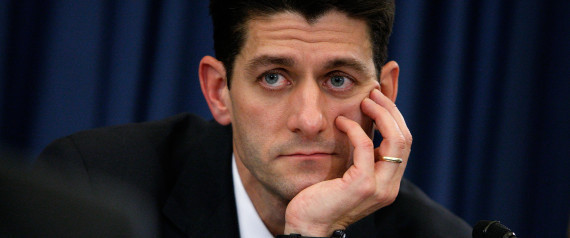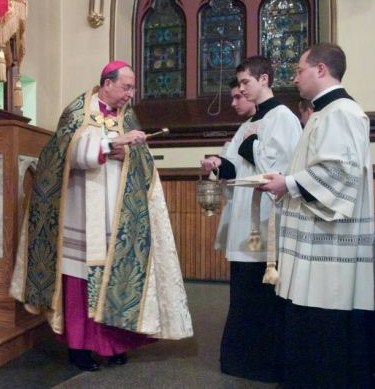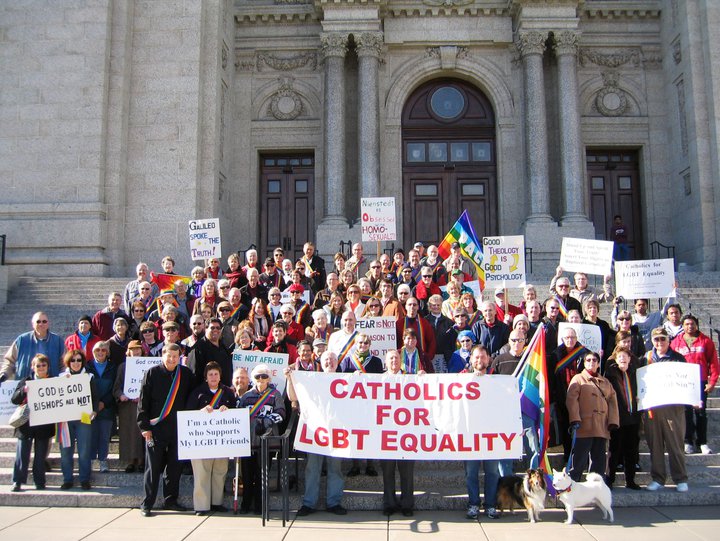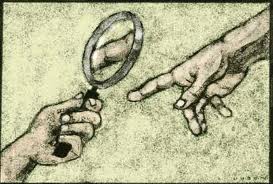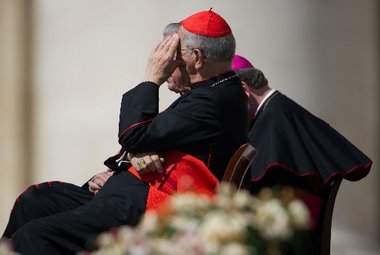Paul Ryan accuses President Obama of engaging in “sowing social unrest and class resentment.” The House Budget Committee chairman says the president is “preying on the emotions of fear, envy and resentment.”
Paul Ryan accuses Elizabeth Warren of engaging in class warfare. The House Budget Committee chairman the Massachusetts U.S. Senate candidate is guilty of engaging in the “fatal conceit of liberalism.”
But what about the Catholic Church, which has taken a far more radical position on economic issues than Obama or Warren? What does the House Budget Committee chairman, a self-described “good Catholic,” do then?
If you’re Paul Ryan, you don’t decry the church for engaging in class warfare. Instead, you spin an interpretation of the church’s latest pronouncements that bears scant resemblance to what’s been written — but that just happens to favor your political interests.
Ryan’s certainly not the only Catholic politician in Washington to break with the church.
For years, Catholic Democrats from House Minority Leader Nancy Pelosi to Massachusetts Senator John Kerry to former House Appropriations Committee David Obey have taken their hits for adopting positions that are at odds with the church’s teachings with regard to reproductive rights and same-sex marriage.
But many of the same politicians who align with the church on social issues are at odds with the social-justice commitment it brings to economic debates.
Ryan’s rigidly right-wing approach to issues of taxation and spending, as well as his deep loyalty to Wall Street (he led the fight to get conservatives to back the 2008 bank bailout), has frequently put him at odds with the church’s social-justice teaching.
But never has the distinction been more clear than in recent days, as Ryan’s statements have reemphasized his status as the leading congressional spokesman for policy positions that are dramatically at odds with those expressed in a major new statement by the Vatican’s Pontifical Council for Justice and Peace?
That puts the congressman in a difficult spot.
Ryan has always identified as a Catholic politician, and he has frequently suggested that he is guided by the teachings of the church, going so far as to write in a July, 2011, column for a Catholic publication that: “Catholic social teaching is indispensable for officeholders.”
So what, Ryan was asked after the release of the Pontifical Council’s statement, did the House Budget Committee chairman think of proposals that the Rev. Thomas Reese of Georgetown University’s Woodstock Theological Center suggests are “closer to the views of Occupy Wall Street than anyone in the U.S. Congress”
Time magazine observes that: “Those politicians who think the Dodd-Frank law went too far in attempting to reform Wall Street will likely need smelling salts after taking a look at a proposal for reforming the global financial system that was released by the Vatican… Calling into question the entire foundation of neo-liberal economics and proposing one world financial order? You never know what those radicals over at the Pontifical Council for Justice and Peace will come up with next.”
So what was Paul Ryan’s take?
What did the chairman of the House Banking Committee think of the Pontifical Council’s highlighting of Pope John Paul II’s criticism of the “idolatry of the market”? What of the council’s call for “the reform of the international monetary system and, in particular, the commitment to create some form of global monetary management” that will end abuses and inequity and restore “the primacy of the spiritual and of ethics needs to be restored and, with them, the primacy of politics – which is responsible for the common good – over the economy and finance”?
Ryan’s initial response to a pointed question about whether the church, with urging of “the global community to steer its institutions towards achieving the common good,” might be engaging in the “class warfare” he so frequently decries, was to try and laugh the contradictions off.
“Um, I actually do read these,” Ryan joked, with regard to Pontifical pronouncements. “I’m a good Catholic, you know… get in trouble if I don’t.”
Pressed to actually answer the question, the usually direct and unequivocal Ryan suddenly embraced moral relativism.
“You could interpret these in different ways,” he said of the statements from the church’s hierarchy. “I think you could derive different lessons from it,” he added.
Amusingly, the congressman then took a shot at moral relativism, suggesting that when the Pope expresses concern regarding the global financial system he is “talking about the extreme edge of individualism predicated upon moral relativism that produces bad results in society for people and families, and I think that’s the kind of thing he is talking about.”
That’s an interesting statement coming from a congressman who frequently mentions his reverence for Ayn Rand, the novelist who set herself up as a high priestess of individualism.
It’s also wrong.
The statements from the Pope and the Pontifical Council have been focused and clear in their criticism of the greed and abuse that characterizes the current financial system, of their concerns about the economic inequity its has spawned, and especially about the damage done to the poor by the “idolatry of the market.”
The Pontifical Council is calling for dramatically more oversight and regulation of financial markets, and for the establishment of new public authorities “with universal jurisdiction” to provide “supervision and coordination” for “the economy and finance.”
“These latter (economy and finance) need to be brought back within the boundaries of their real vocation and function, including their social function, in consideration of their obvious responsibilities to society, in order to nourish markets and financial institutions which are really at the service of the person, which are capable of responding to the needs of the common good and universal brotherhood, and which transcend all forms of economist stagnation and performative mercantilism,” the council continues. “On the basis of this sort of ethical approach, it seems advisable to reflect, for example, on… taxation measures on financial transactions through fair but modulated rates with charges proportionate to the complexity of the operations, especially those made on the ‘secondary’ market. Such taxation would be very useful in promoting global development and sustainability according to the principles of social justice and solidarity. It could also contribute to the creation of a world reserve fund to support the economies of the countries hit by crisis as well as the recovery of their monetary and financial system…”
That’s a reference to a financial speculation tax, something that Ryan — a major recipient of campaign contributions from traders, hedge-fund managers and other Wall Street insiders — has historically opposed.
The Pontifical Council says that such a tax should be considered “in order to nourish markets and financial institutions which are really at the service of the person, which are capable of responding to the needs of the common good and universal brotherhood, and which transcend all forms of economist stagnation and performative mercantilism.”
There is no moral relativism in that statement, no list of options. Rather, there is a call from the Catholic Church for the development of an economy and financial systems “capable of responding to the needs of the common good and universal brotherhood.”
I happen to agree with the church on this one. My sense is that my friend Paul Ryan does not.
America is not a theocracy. Ryan certainly has a right to deviate from church doctrine as he chooses. But, hopefully, he will recognize that he is, like those members of Congress who support reproductive rights or same-sex marriage, distancing himself from the position of the church.
He is free to do so, of course. But those of us who understand that budgets are moral documents — which outline the values and priorities of a society — are equally free to wonder whether Paul Ryan, as chairman of the House Budget Committee, is perhaps engaging too ardently in the “idolatry of the market.”
Complete Article HERE!

